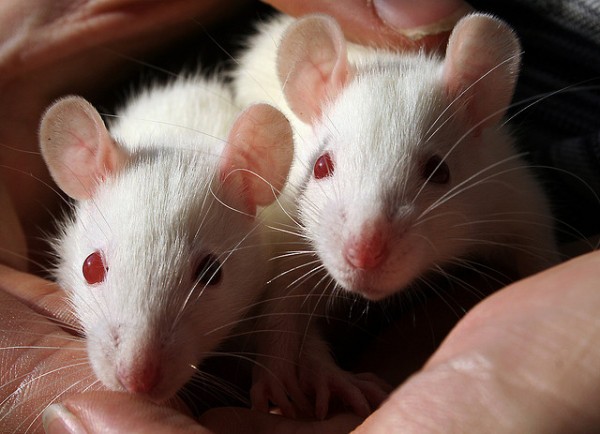Lab Mice Are Afraid of Men, but Not Women

Researchers have found evidence that lab mice may become increasingly stressed around male researchers but not their female colleagues, according to a recent study.
The study, published in Nature Methods may in-effect be calling the results of thousands of past studies into question, as the consequences of male researcher-induced stress may have unexpectedly influenced test results.
According to the study, researchers measured mouse stress through the "mouse grimace scale" -- a measure of pain and pain resistance through how the rodent reflexively tenses its muscles.
Researchers from McGill University exposed several lab mice to varying levels of pain, and measured their Reponses to create a model for the "mouse grimace scale." They then exposed these mice to male or female researchers while administering small measured amounts of pain.
According to the study, when mice were exposed to only women researchers and/or their odor (such as from a t-shirt) the mice reacted to pain as expected. However, when the mice were exposed to male researchers or their smell, the mice suddenly proved more resistant to pain, "grimacing" less. According to the researchers, sudden pain resistance implies increased stress levels associated with fear, where an animal exposed to a fight-or-flight stressful situation will overcome pain to respond accordingly.
Additional experiments showed that the rodents also had increased body temperatures and levels of corticosterone, a stress hormone, in response to the smell of male mammals of any kind, including humans.
According to the researchers, they suspect mice act this way because they cannot distinguish the smell of males from different species. To mice and even rats, the researchers explain, the smell of a male researcher will trigger a fearful response associated with their territorial instincts, perceiving the odor of a male unaccompanied by females as a threat.
"A lone male is up to no good - either hunting or defending his territory," Jeffery Mogil of McGill University explained to TheVerge.
However, Mogil explains that the presence of a female odor can counteract the male smell. Even more encouraging, the stress reaction eventually dissipates as the mice become more accustomed to the researchers' presence. Still, the authors of the study write, this initial effect may have been enough to have skewed the data of countless studies.
The study was published in Nature Methods on April 28.
Apr 28, 2014 03:17 PM EDT





